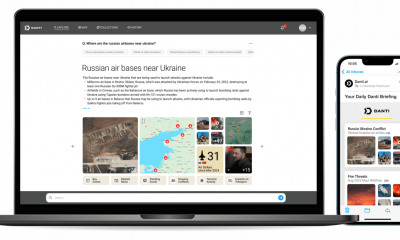Entertainment
Jess Wade is creating inclusion in STEM, one Wikipedia page at a time

Jessica Wade saw a problem and immediately created a solution.
It’s impossible to ignore the disparities in science. White, upper-middle class men are more likely to work in the STEM fields than women, people of color, or those who grew up in lower-class families. And when women and people of color do become scientists, they’re rarely credited for their contributions. So Wade, a 33-year-old London-based physicist, decided to change that. Starting in 2018, she had began adding Wikipedia entries for unknown women scientists. She’s since written thousands. (1,767 to be exact.)
In an interview with Mashable, Wade talks about why she set out to change those red links, her research process, inequality in STEM, and, of course, Neopets.
Mashable: Why did you start adding all of these scientists to Wikipedia?
I’ve been thinking about representation and equity in subjects like physics and chemistry — the areas that I worked in for a really long time. I’ve been trying, since I was an undergrad and then a PhD student, to improve the representation of people from particular groups. We know women are really underrepresented in physics, but also it’s incredibly white. It’s incredibly upper-middle class, posh people who choose to study physics. And that’s because there’s barriers to entry that are rooted in how privileged your upbringing was. So how likely you were to have an fantastic physics teacher or to be able to go to after school classes or take an advance course or your parents were physicists or engineers. All of that really influences young people’s perceptions of themselves.
I was thinking about that a lot, and it got me started on this need to improve how we excite people about science, to get more young people interested in studying these subjects, but also to really honor and tell the stories of phenomenal scientists and engineers who have been historically excluded. They’re really powerful stories…but also they’re just important to document.
Throughout history, you have these books written about men and by men usually, and if they’re honored, they’re certainly written by men. And then they’re written about other men from privileged backgrounds interacting with other men. And Wikipedia gives us this way to really change that, to flip that narrative on who’s doing science, who’s done science, and why it’s critical… To make something more accurate and complete and to really honor the work that these pioneers have done and have not been celebrated or credited for.
I’m interested in your choice of the word accuracy. Because it’s not that the other Wikipedia pages weren’t accurate; they just didn’t show the full picture.
We can be selective. Textbooks are remarkably good at this. They tell the story of who made a discovery, but they say it through the eyes of the person who wrote that part of the chapter of the textbook or whatever… We cherry-pick who history wants to document as discovering something, but we don’t see the bigger picture of the scientists around it. And all too often when you look in those margins and those spaces, that’s where the women are, or the people of color are, or the people from LGBTQ+ communities whose voices weren’t heard as loudly as their white, straight privileged male counterparts. So it’s not that what’s on there isn’t right. It’s that it doesn’t tell the whole story.
How many pages have you added?
Nearly 1800. 1,767.
How long does that take?
It takes a long time, but it’s exciting… I find it so uplifting and also relaxing because sometimes when you’re in the lab all day, nothing goes right… Wikipedia probably takes a couple of hours or an hour or two hours to write a Wikipedia page, but I find it incredibly exciting to be able to do it. And I’m always pumped and compelled and inspired by the people I’m writing about. It’s cathartic amidst a chaotic scientific environment.
Where do you find the women who need citations?
Sometimes they’re people who exist on Wikipedia just as red links, so people whose pages haven’t been written. More often than not, women’s names are red on Wikipedia. There’s actually a project called “Wiki Project Women in Red” to try and rectify that. But there are obviously low-hanging fruit and certainly when I started I was focusing on professors, mainly professors in the UK. I like challenges, so I was like, “I’m gonna write a page every day.”
I didn’t really realize what that would become. I assumed that I’d give up eventually. I started with pages about women physicists in the UK, and there’s only a handful of women professors of physics in the UK. Pretty much all of them are white. And then I started, as we all have, thinking a lot more about what representation actually means. It’s not just, “Oh, great, you have a woman.” It’s much more complicated than that. So then I started looking in different areas and different countries and actually writing an awful lot of pages about American scientists because the U.S. has had affirmative action programs that have worked for quite a long time, and they do have quite good representation, certainly of African American faculty. [It’s] much better representation than we have of Black professors of science and engineering in the UK. So I often found myself writing about American academics.
I look through historical archives. I look through journals. I look at who’s speaking at a conference, who’s just been inducted into the AAAS [American Association for the Advancement of Science], who’s got a National Academy of Engineering fellowship, going through all of these different platforms, finding these names. I had quite a comprehensive list to work through, and now it’s more. I have absolutely no time. So I just keep them in a bookmarks folder, and I come back to them.
What’s your research process?
I have a bunch of different tabs open, documenting people’s contributions to discovery and innovation. It starts on a search engine and it will be: Where did they do their PhD, or where did they do their undergrad, or what was their maiden name? That’s often a challenge for women that you’re writing about, especially historical ones who got married and then you can’t find anything about their early history. But Americans are fantastic. You can find track and field scores from their high school in 1974. It’s wild. Often they’re covered in conventional media. Have newspapers and broadcasting houses done big profiles on them? Because that makes it generally easier to write a Wikipedia page.
Pulling together that story and then clicking publish and seeing this remarkable process where it might get translated to a different language, or it will get linked to a different page or that person will then be on the notable alumni section of a University. The Wikipedia pages are very dynamic. They’re not like the pages of a textbook. When I press publish, they’re alive and other people update and improve them consistently. I quite love that.
What was the first Wikipedia page you ever wrote or edited?
The first one that I ever wrote was about a climate scientist called Kim Cobb, and she’s a professor of climate science at Brown University. I actually met her. She gave a talk somewhere, and she was a phenomenally impressive person who had this huge research program to understand the human impact on climate change. She did all these extraordinary things, like going off on huge ocean missions to collect corals and to investigate the chemistry and to use that to understand how humans have impacted the life on planet earth. She’s also on various policy facing panels within the AAAS and has a huge campaign to improve diversity and access and participation in climate research. She’s so impressive on so many different fronts, so I was very surprised she didn’t have a Wikipedia page.
Do you have many more to add?
I don’t think I’ll finish. When I started editing, representation of women on Wikipedia was about 17 percent. So I had a long way to go when I started. Now it’s up to about 19 percent. That just shows you the sheer scale of the challenge because as I and others write pages about women, other people write pages about men. But also, it’s not just women; it’s all aspects of people who’ve been historically excluded that aren’t documented. It will be people from the global South. It will be people who are working in non-Ivy league institutions. There’s so many ways that our society is set up to celebrate privilege that we need to dismantle online and offline. I don’t see my work as being done.
What makes Wikipedia so important? It’s not like the perfect source, but what makes it so valuable?
Nothing is the perfect source, right? As soon as you publish a textbook, it’s out of date. As soon as you read an article by a journalist in a newspaper, you’ve got some bias from that person or the political leanings of the newspaper that’s changing the way that you view a topic. Wikipedia is by far our most complete and comprehensive document of current affairs, but it’s got its flaws and that’s what we’re all trying to rectify. But it provides you with this whole big picture perspective in nonpartisan, digestible, jargon-free language. The definition of what’s good and bad is really interesting when you have the kind of world that we live in now. We don’t appreciate how many different aspects of society use Wikipedia. When you ask Google Home or Amazon Alexa a question, they go to Wikipedia for that content. Journalists use Wikipedia. People who are about to go on radio to discuss a particular topic, they go on the Wikipedia page to brush up on it. Policy makers use Wikipedia.
Do you still fall into Wikipedia holes like the rest of us, or has your relationship with the site has changed?
Of course I do. When I’m being trained on a new piece of equipment, or when I’m trying to interpret data, I always go to Wikipedia and get lost in how incredibly comprehensive it is of some things and how much work needs to be done on other areas… Those rabbit holes always end up at philosophy, no matter where you start, if you just keep clicking, you’ll get to philosophy. Everyone does it, and I think that’s the beauty of it. One part of it is improving content on the site, and the other part of it is improving the links between content because they’re so important for driving people to read and to discover.
How are you moving forward?
I’m training other people to edit. I’m one person, but there’s millions and billions of people on planet Earth who will rely on Wikipedia and have huge insights that they can add. So training people on not only how to edit, but translating things or uploading photographs or diagrams — all of that’s really critical to Wikipedia and the project more broadly. We need to share things, we need to share information and discoveries, but also really think about how we honor people beyond just online. Whether that’s nominating people for prizes and awards, or whether that’s thinking about how we teach a topic, what are we including in our curriculum? Could we change the way that we introduce something to recognize that it’s not always done by white western men?
What was the first website you were like truly obsessed with?
Neopets. It was 4000 percent Neopets.
Do you remember any of the names of your Neopets?
Oh my gosh, no. I can’t remember. It was probably Neopets and simultaneously Dollz Mania. Is that what it’s called? I remember dying of embarrassment because of the adverts that came up next to Dollz Mania. They were always completely inappropriate for children to see. And my mom would come into my [room with my] massive overheating computer, and I’d be sitting there putting a little pixelated skirt on some little pixelated girl and being like, “I’m a creative genius.”
-
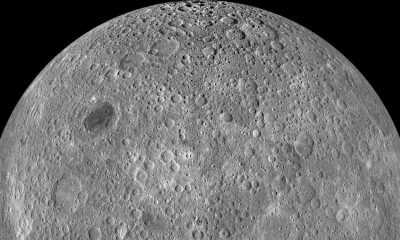
 Entertainment6 days ago
Entertainment6 days agoWhat’s on the far side of the moon? Not darkness.
-
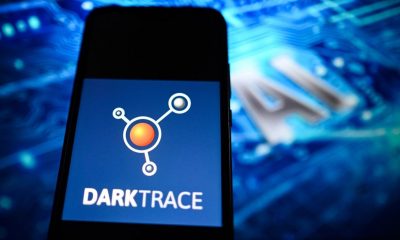
 Business7 days ago
Business7 days agoThoma Bravo to take UK cybersecurity company Darktrace private in $5B deal
-
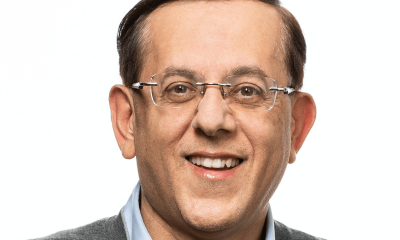
 Business6 days ago
Business6 days agoHow Rubrik’s IPO paid off big for Greylock VC Asheem Chandna
-

 Business6 days ago
Business6 days agoTikTok faces a ban in the US, Tesla profits drop and healthcare data leaks
-
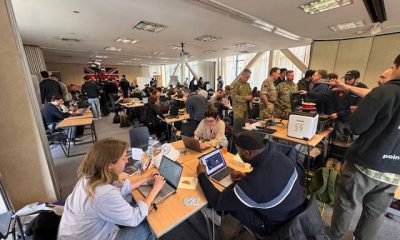
 Business5 days ago
Business5 days agoLondon’s first defense tech hackathon brings Ukraine war closer to the city’s startups
-

 Business7 days ago
Business7 days agoPhoto-sharing community EyeEm will license users’ photos to train AI if they don’t delete them
-

 Entertainment6 days ago
Entertainment6 days agoHow to watch ‘The Idea of You’: Release date, streaming deals
-
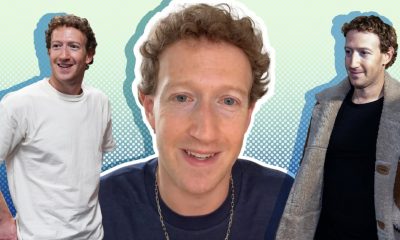
 Entertainment5 days ago
Entertainment5 days agoMark Zuckerberg has found a new sense of style. Why?





